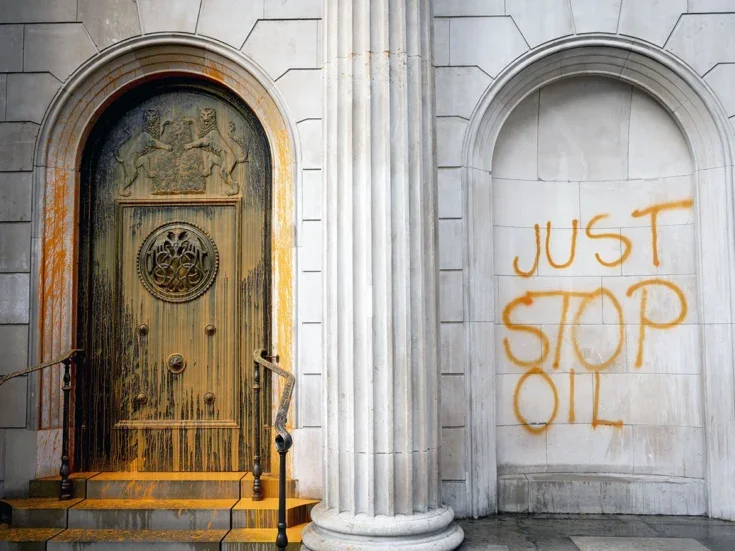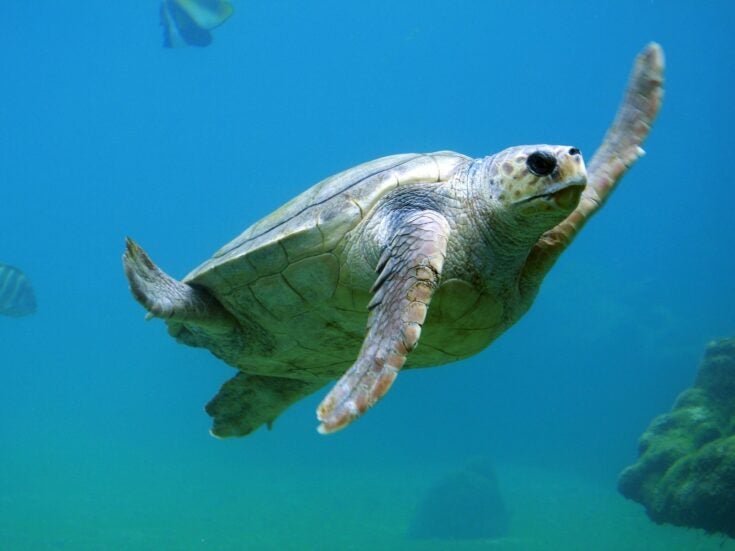The point of the five-day summit is about reminding oneself that it’s not too late to be taken seriously again, to be seen as a visionary
When David Cameron first attended the Davos summit years ago as leader of the opposition, he was put up in a nondescript hotel, politely told he was only able to bring a ‘plus one’, and had to carry his own suitcase. This year Cameron – as prime minister – was staying in a suite at the Belvedere, was invited by Davos founder Klaus Schwab to make a keynote address to the forum, and brought an entourage as large as Bill Clinton’s.
This included George Osborne, who gave an electric speech to the British Business Leaders lunch typed on his laptop on the plane over, about his plans to give the UK ‘the most competitive tax rates’ in Europe, and Nick Clegg, a former ski instructor and Davos veteran – of the Weissfluh summit that is, the long ski run from Davos to Klosters.
It has long been a cliché that Davos is not really about the worthy panel discussions or saving the world but rather delegates’ self-interest, ego-stroking, meeting fellow gorillas and – above all – ‘raising money’, as one of the world’s most secretive and successful hedge fund managers whispered to me at the above lunch after a quick handshake with David Cameron.
The point of the five-day summit is really about getting out of the office and reminding oneself – typically this is the case with a hedge fund manager worth £200 million-plus who once read English or History at Oxford and saw themselves as an intellectual until staring at the trades on their Bloomberg screen for a decade fried their sensitive First Class honours brain – that it’s not too late to be taken seriously again, to be seen as a visionary.
Suddenly they want to go back to doing something useful again, to meet with artists and thinkers and professors, and they want to be quoted in the New York Times as somebody who is ‘making a difference’
As they walk up the Thomas Mann path in their Prada snowboots to a closed-session lunch at the Hotel Schatzalp with its glittering panoramic views, Davos Alpha Man can still just remember the thrill of reading The Magic Mountain aged seventeen on the worn armchair in his Christ Church set. Suddenly they want to go back to doing something useful again, to meet with artists and thinkers and professors, and they want to have their own foundation, to serve on philanthropic boards, to be quoted in the New York Times – not as some fat-cat banker schmuck who sits on the board of MOMA – but as somebody who is ‘making a difference’.
So you arrive in Davos with a briefcase of business cards, a packed schedule – organized by the executive assistant – and the chance to shine and show off on panels how intelligent you are among your peers and the smartest editors, while wearing those $1,200 cowboy boots you bought in a boutique after a drink too many at the Aspen Club.
And don’t forget your audience includes not only many of the world’s most important global political leaders, business figures and CEOs but also a cohort of foxy and smart little-black-dress-wearing twentysomething researchers with PhDs from Harvard who are eager to snag a hedgie with a conscience or an economics professor who advises the US administration as their (first) husband. According to a financier friend who is a Davos veteran, the article with the most web hits this year was a blog about the jealous anxieties of Davos Mistress – her worst fear is being left abandoned for hours sitting alone in the lobby bar of the Belvedere and doubtless mistaken for a hooker.
In a global elite power networking summit that is obsessed with ego, status, getting into closed events and having the right level of security pass around your Loro Piana cashmere jersey, Swiss police with machine guns guard every security entrance where lights flash in different colours according to your delegate status (wives of paying delegates just have their name printed on their badge, without any reference to their husband’s company, title or position).
Cameron’s new exalted status – primus inter pares – was best exemplified by the car pass he is now bestowed with by Davos founder Klaus Schwab, who started the summit in 1971 with 444 business leaders from Western firms (it was then called the European Management Forum) with the aim of educating European firms about American management practices. It then evolved into today’s Circus Maximus in the snow for the world’s elite to schmooze, card-swap, network and make themselves feel important, or at least remind themselves, after paying out up to 50,000 Swiss francs for a plastic name tag.
As a Western government leader of the first rank (the Panamanian president, who I spotted at a table of the Sloaney Casa Antica nightclub in Klosters one night, had to make do with a black VW minibus), Cameron was shuttled around in an ‘official’ car – usually but not always accompanied by a Swiss police convoy – that actually had no car pass badges whatsoever on the inside of the window. In Davos, that is the ultimate. Meanwhile the likes of Bill Gates or Sir Martin Sorrell, who hosted a glitzy party on the Friday night at the Belvedere and advised global companies to invest almost anywhere but the West right now, all had to stick either a ‘B’ car pass badge (meaning they were a Global Partner) or an ‘AA’ pass on their window which meant a mere ‘VIP’.
The subject I heard the most was whether Davos itself was losing some of its shine and status as the ultimate insider event for the ever-travelling global elite
I bring up this Davos status obsession up because it leads me onto what I heard mentioned perhaps the most about Davos this year. It was not the small bomb (constructed from ‘pyrotechnics and sugar’) that exploded on the second morning in the basement of the Morosani Posthotel and was, in true Swiss cover up style, barely reported in the press. It was not the message of the ‘Greener Davos’ stickers on all the official cars, nor the plea from Jamie Dimon, head of JP Morgan, to give bankers a break.
Not the problems in Egypt; not the sense of growing hostility to the idea of a global elite of the new financial and entrepreneurial classes and heavyweight intellectuals. (This includes star hitters like Obama’s economic advisor Larry Summers and Niall Ferguson, who were being feted at the most closed-door private dinners and lunches, from the Washington Post lunch on the Thursday hosted by Lally Weymouth to the Canadian industrialist Peter Munck’s exclusive dinner in an inaccessible mountain chalet on Saturday night.)
Nor was it the notion – as pushed by the Economist’s recent special report into the dangers of and the book The Spirit Level – that creating an ever-growing and more educated super-wealthy class of uber-rich have-it-all-types invariably fosters – alongside it – more poverty, crime, a black economy, higher infant mortality, sexual and racial discrimination and almost everything else nasty and undesirable. (Buy The Spirit Level in the Spear’s bookstore.)
No. The subject I heard the most was whether Davos itself was losing some of its shine and status as the ultimate insider event for the ever-travelling global elite. There were murmurings that the Obama administration were – again – giving Davos something of a cold shoulder. There were suggestions that the real social action is now at other places that can be jetted into such as Sun Valley, the Google conference in London, the Clinton Global Initiative, the Aspen gathering, or the new St Petersberg Economic Summit.
But the reality is that Davos is the Cannes film festival of the new global elite class. It might not be as edgy or cool as, say, Nathan Myhrvold’s ‘invention sessions’ in Seattle but it is what the soi-disant global elite have now become used to.
Davos might be old news for the likes of Bill Gates and Bono but it is still the place to go for your newly minted Russian oligarch or Indonesian mining tycoon who wouldn’t ever set foot in America. The fact that it is Switzerland means that it safe to play and safe to travel and safe to do business. The world’s rich will always need a stage to do their business, their networking, their raising money and their look-at-me panel discussions.
When I found myself at midnight one evening in the basement of the Belvedere hotel looking for Willy’s Bar, I knocked on the door and was met by a gruff Russian woman, dripping with Bulgari, who was guarding the door. ‘This is private negotiation room,’ I was told curtly. As long as the world needs social negotiations, Davos – even if it is just a pretty mountain backdrop – will fit the bill.






